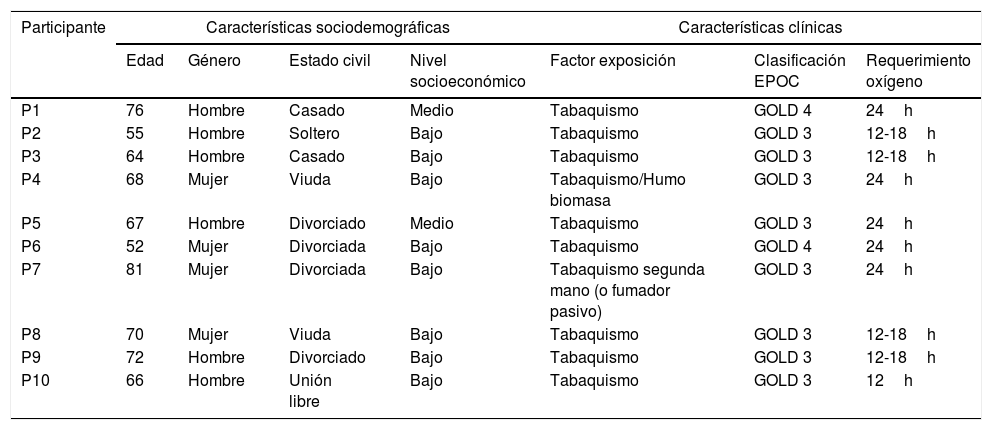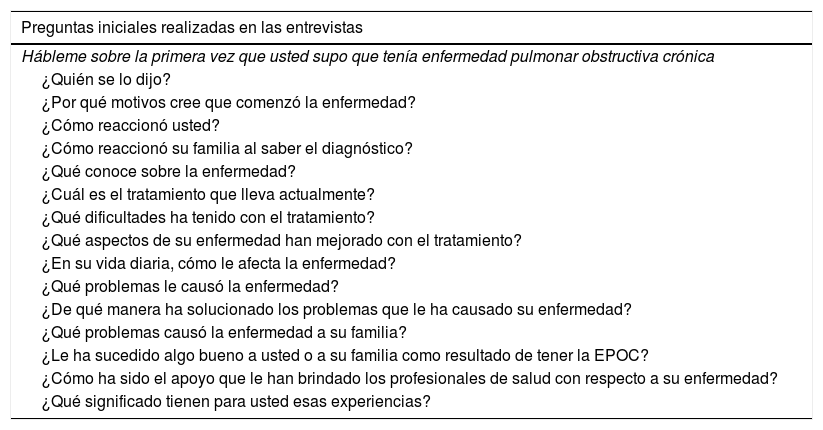Conocer el significado de las experiencias vividas por personas con enfermedad pulmonar obstructiva crónica.
MétodoEstudio con enfoque cualitativo de tipo fenomenológico hermenéutico. Se realizaron entrevistas en profundidad a 10 personas que presentaban enfermedad pulmonar obstructiva crónica grave y muy grave.
ResultadosSe describen los hallazgos encontrados en 3 temas emergentes y sus consecuentes subtemas que relatan: el proceso de la enfermedad enfatizado en 5 subtemas relacionados con el conocimiento de la enfermedad, el ahogo y cansancio como síntomas desagradables cotidianos, el ahogo como amenaza de muerte, la negación a la dependencia del oxígeno y los sistemas de afrontamiento para el control de la enfermedad; en el segundo tema se describe el apoyo familiar con 2 subtemas, pérdida de roles y carga de cuidado; y en el tercer tema se describe el apoyo del sistema de salud con 2 subtemas, atención médica y cuidado enfermero.
ConclusiónLos síntomas y los cambios funcionales, en general, denotan un significado distinto tanto en momentos cotidianos como en momentos de exacerbación. Así mismo, se develan cambios en el estilo de vida a causa de la pérdida de roles y de los procesos de atención en salud, como experiencias que no permiten un afrontamiento y adaptación efectivos.
To determine the meaning of the experience of people with chronic obstructive pulmonary disease.
MethodA qualitative approach study rooted in hermeneutic phenomenology. In-depth interviews were conducted with 10 people with critical and severe chronic obstructive pulmonary disease.
ResultsThe findings obtained are described in three emerging topics and their consequent subtopics, which describe the process of the disease focusing on five subtopics related to awareness of the disease, the choking characteristic of the disease and tiredness as daily unpleasant symptoms, as well as choking as a death threat, rejection of oxygen dependency and coping systems to control the disease. In the second topic, family support with two subtopics are described: the loss of the patient's role, the burden of care; and the third topic concerns the support of health system on two subtopics: medical care and nursing care.
ConclusionThe symptoms and functional changes in general, denote a different meaning not only in everyday life, but also in times of exacerbation of the condition. Likewise, changes in lifestyle due to the loss of roles and health care processes are revealed, as experiences that do not allow effective coping and adaptation.
Artículo
Comprando el artículo el PDF del mismo podrá ser descargado
Precio 19,34 €
Comprar ahora









